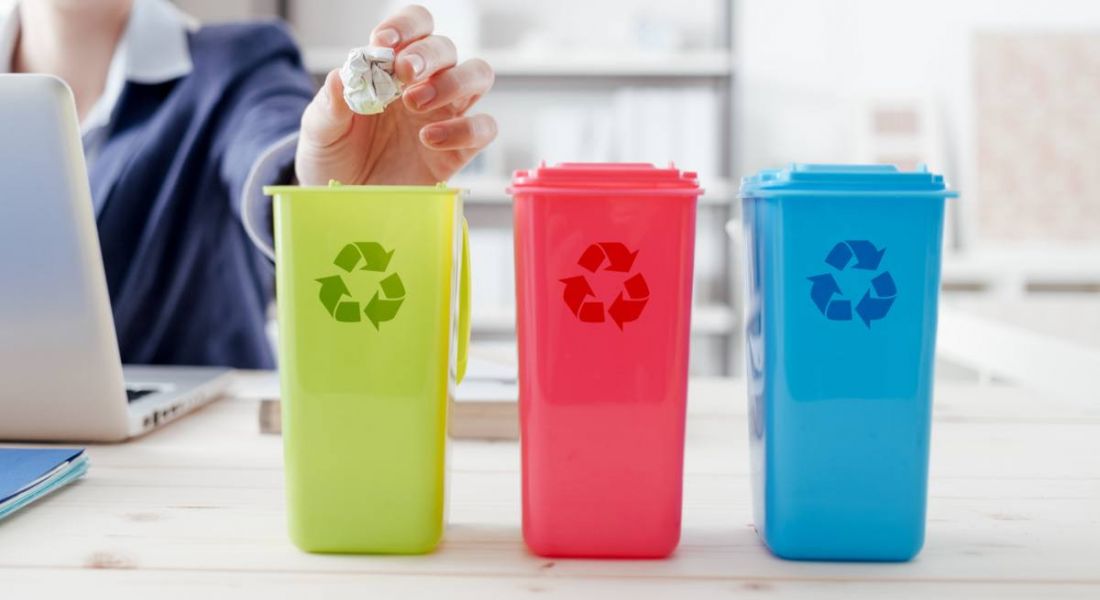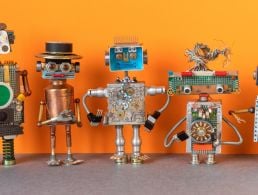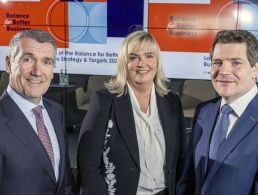We spoke to Bethany Fiore from William Fry about the firm’s Low Carbon Pledge and taking sustainable action at work.
Last year, William Fry was among the signatories to a Low Carbon Pledge with Business in the Community Ireland (BITC). In mid-June, BITC and PwC released the first annual report on how pledging companies had fared in tackling their carbon emissions, finding an average 36pc reduction in carbon intensity emissions from the previous baseline.
“Reducing our carbon emissions was already a part of our sustainability goals so, for us, signing on to the pledge was a public expression of that commitment and an opportunity for us to collaborate with other leading businesses on the climate action challenge,” said Bethany Fiore, manager of William Fry’s Responsible Business Programme.
Fiore oversees the firm’s community partnerships and pro bono work, with her work involving health, wellbeing, diversity and and inclusion initiatives, and William Fry’s sustainability programme.
We spoke to Fiore about the Low Carbon Pledge and how it has changed the workplace at William Fry. We also found out how the firm has tackled some of the communications issues that can hamper environmental initiatives at work.
‘We reduced our direct carbon emissions intensity by nearly 20pc between 2016 and 2018 through the use of sensors on our lights, energy-saving equipment and staff engagement’
– BETHANY FIORE
What does the BITC Low Carbon Pledge mean for William Fry’s operations?
As a professional services firm, our primary source of direct emissions is energy use. So, from an operational perspective we have invested in energy-saving technology and equipment to help reduce our CO2 emissions.
The other big factor for us is people, so we are continually working to educate and engage our staff to take energy-saving steps throughout their workday such as turning off lights, switching off screens and powering down computers when not in use.
What have actions such as the addition of light sensors and awareness campaigns contributed so far to reducing the firm’s carbon footprint?
We reduced our direct carbon emissions intensity by nearly 20pc between 2016 and 2018 through the use of sensors on our lights, energy-saving equipment and staff engagement. Our goal is a further reduction of 20pc in 2019 through the installation of LED lighting and stepping up our staff engagement campaign.
Part of William Fry’s Low Carbon Pledge is to develop a firm-wide campaign to demystify what goes in the general, compost and recycling bins – is this in response to the misuse of these bins?
Most of us have probably at some point found ourselves standing in front of the bins at home or in the office and wondering what goes where. The desire to do the environmentally sound thing is there but sometimes the knowledge is lacking.
We noticed that there were certain items that kept winding up in the wrong bin so we launched a campaign to demystify what goes in the bin. We created posters highlighting the items that people said they were confused about, ran a recycling workshop for staff and included information in our staff newsletter.
We also have a Green Team with members across the firm who are on hand throughout the day to answer questions and help people use the right bin. The good news is that the campaign is working and we are finding that people are getting better at knowing which bin to use!
Do you find part of this challenge overall is educating people on environmentally conscious initiatives? How difficult is that to achieve?
I think the size and scope of the climate challenge can be overwhelming for people and sometimes there is a sense of helplessness. What difference can I really make? So, the hardest part is helping people to understand that the small changes they make can really create a big difference.
If we all use a reusable cup for our coffee instead of a disposable one; if we use a reusable water bottle instead of buying plastic ones; if we walk, cycle or take public transport instead of driving – these are all small, easy changes to make, but if we all do them the positive impact on our environment is huge.




